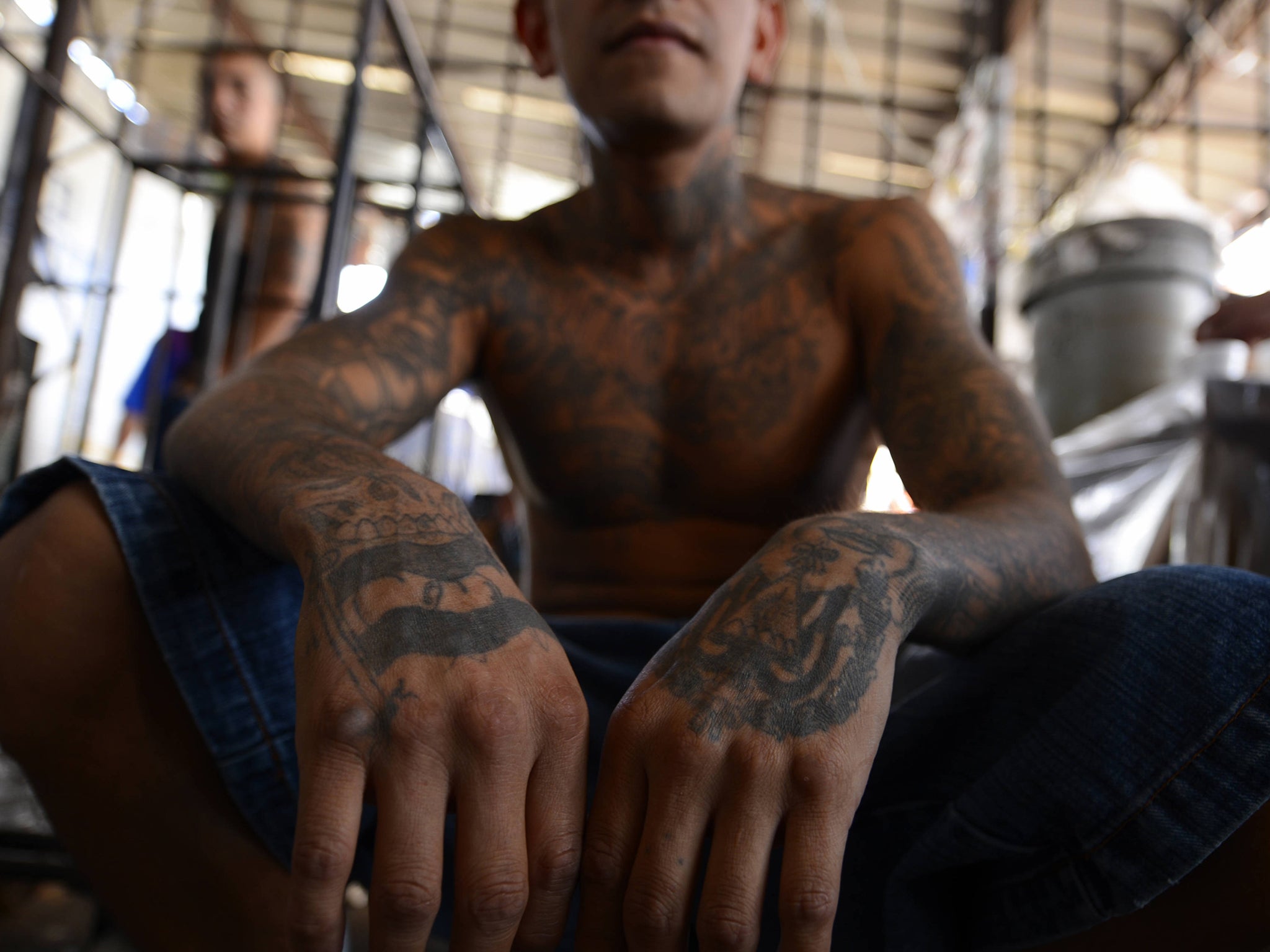The Independent's journalism is supported by our readers. When you purchase through links on our site, we may earn commission.
The financial reason some gang members cover their bodies in tattoos

Your support helps us to tell the story
From reproductive rights to climate change to Big Tech, The Independent is on the ground when the story is developing. Whether it's investigating the financials of Elon Musk's pro-Trump PAC or producing our latest documentary, 'The A Word', which shines a light on the American women fighting for reproductive rights, we know how important it is to parse out the facts from the messaging.
At such a critical moment in US history, we need reporters on the ground. Your donation allows us to keep sending journalists to speak to both sides of the story.
The Independent is trusted by Americans across the entire political spectrum. And unlike many other quality news outlets, we choose not to lock Americans out of our reporting and analysis with paywalls. We believe quality journalism should be available to everyone, paid for by those who can afford it.
Your support makes all the difference.Gangs like the Mara Salvatrucha have spread their influence all over the Western Hemisphere, and one of the clearest signs that you're dealing with their members is the garish tattoos that often adorn their bodies.
The designs of those tattoos can often vary, specified by individuals and their gangs, but there's an underlying reason that people get them, and it makes perfect business sense.
"There's a weird economic reason for these tattoos: It makes these employees much easier for the cartel or the gang to keep hold of," Tom Wainwright, author of "Narconomics" and former Economist reporter in Mexico City, told Business Insider.
"If you picture one of these gangs in El Salvador, where many of the members have tattoos, literally from head to toe, it's much much harder for those employees to go and find a job somewhere else," Wainwright added.
The Mara Salvatrucha, also known as MS-13, is most closely associated with the head-to-toe tattoos.
Prisons in El Salvador and Honduras, where MS-13 is based, are full of current and former gang members coated with ink identifying their loyalties, whether to MS-13 or another Central American gang like Barrio 18, which is regarded as one of MS-13's main rivals.
While the inkings are often inscrutable to outsiders, members of the gang world are familiar with their meanings. This helps them identify compatriots and prevents members from straying.
"These guys can't find work anywhere else," because the markings make it difficult for them to switch allegiances, Wainwright told Business Insider.
"They can't find work with a rival cartel, and so they have to stay working for the gang that they started off with. This makes them much cheaper and it means that the gang can treat them how they like."
As these gangs have spread to places were anti-gang law-enforcement efforts are more robust — like the suburbs of Washington, D.C. — the tattoos have become a less central part of gang life.
Tattoo-removal programs have also cropped up, as government and civil-society efforts to pull people away from gangs have ramped up.
But for MS-13 and other gangs, where proof of loyalty is vital, tattoos aren't going anywhere.
"It's something that's strongly encouraged," Wainwright said. "And I think if you want to join a gang like the Mara Salvatrucha in El Salvador, you can't join unless you get the tattoos."
Read more:
• This chart is easy to interpret: It says we're screwed
• How Uber became the world's most valuable startup
• These 4 things could trigger the next crisis in Europe
Read the original article on Business Insider UK. © 2016. Follow Business Insider UK on Twitter.
Join our commenting forum
Join thought-provoking conversations, follow other Independent readers and see their replies
Comments